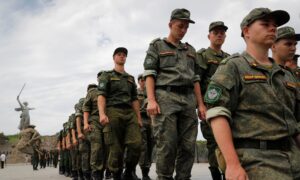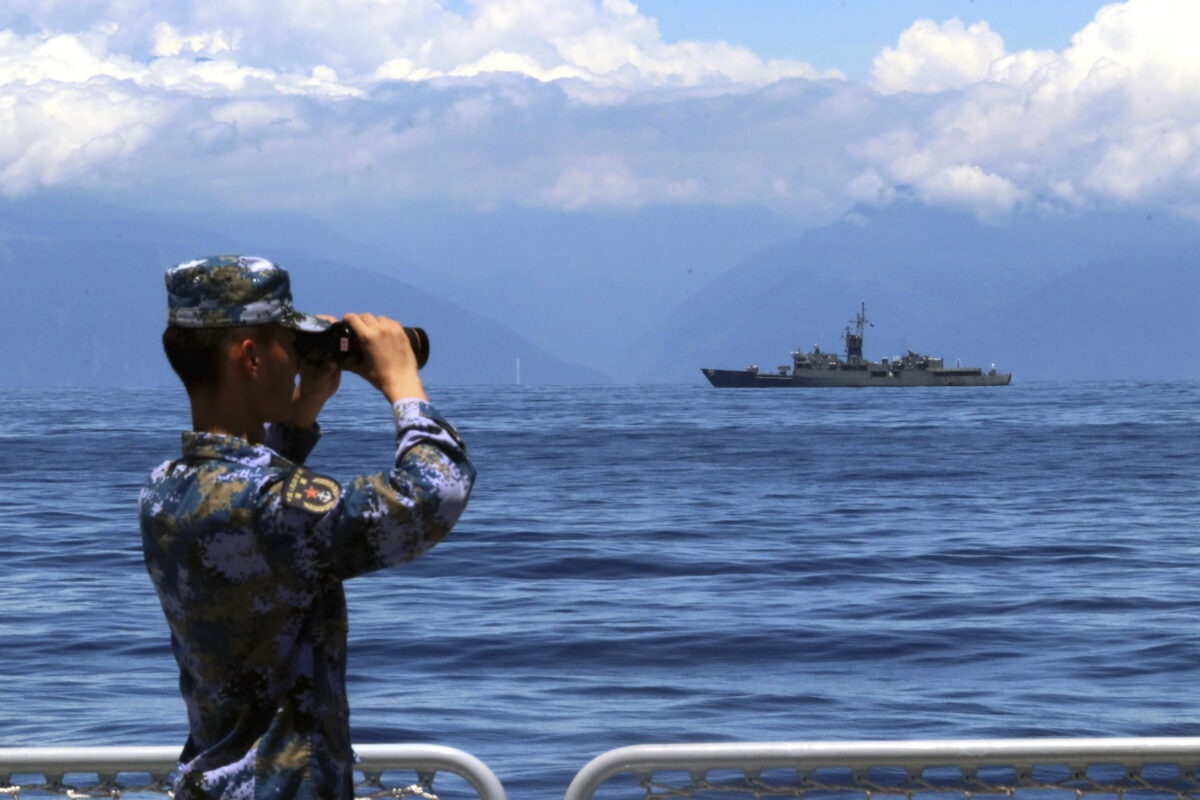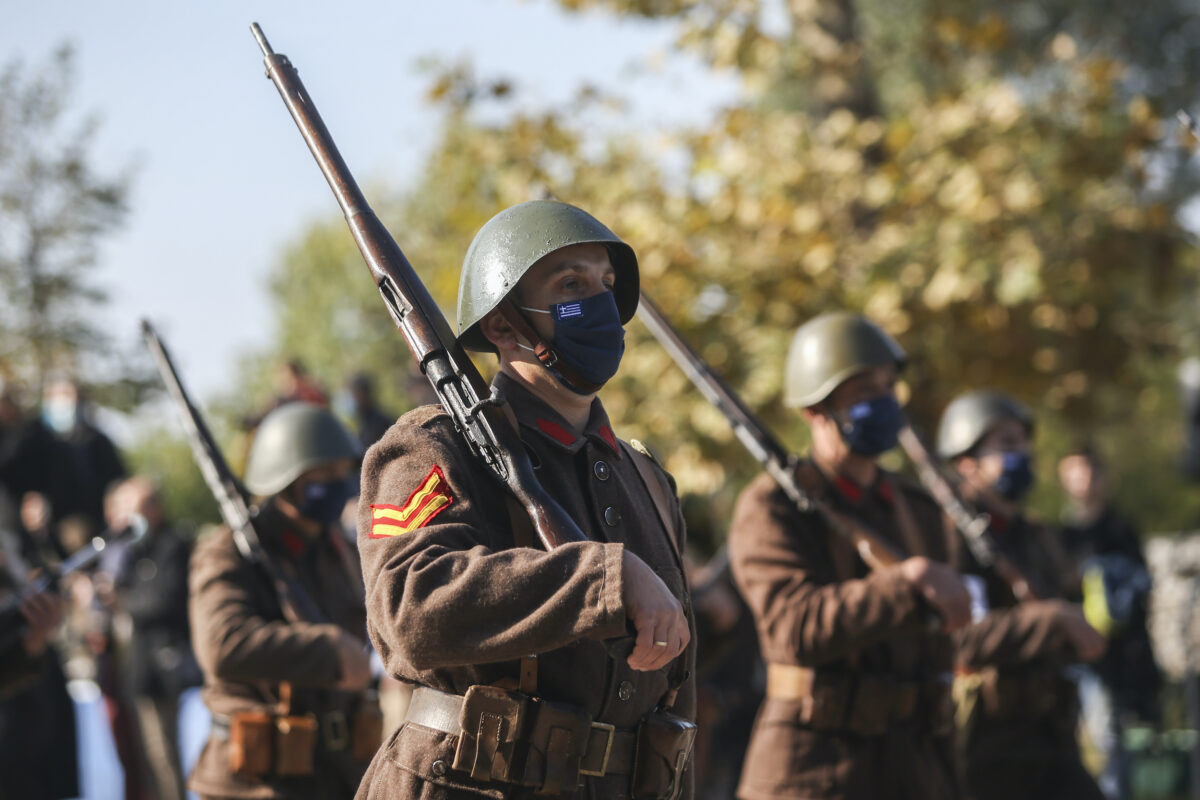Global Conflicts Lead Back to Russia and China
CommentaryUkraine is grabbing the headlines, but military conflicts are flaring up around the globe, many of which are tied to China, Russia, or both. Of the 32 armed conflicts reported in 2021, the majority are still going on. Ethiopia’s Tigray region has been in a state of civil war since November 2020. China has provided billions to the government to fund infrastructure and manufacturing projects and train the national police. Through 2021, Ethiopia purchased air defense equipment from Russia until sanctions halted sales. Ethiopia did not condemn the Russian invasion of Ukraine. In April, Reuters reported that Ethiopian men turned up at the Russian Embassy to volunteer to fight on the Russian side, although there is no evidence they were accepted. The war in Yemen started in 2014 and is ongoing, with China backing the Saudi-aligned government of former President Abdrabbuh Mansur Hadi. The war in Ukraine has threatened starvation in Yemen as wheat exports from both Russia and Ukraine run dry. In Afghanistan, the new government cannot pay civil servants. The economy has collapsed, and ethnic minorities are being persecuted. China is the primary diplomatic partner and financier of the Taliban, while the local branch of the Islamic State is threatening war with the country’s rulers. The conflict in Burma (commonly known as Myanmar) is “the world’s longest ongoing civil war” that began in 1948, according to School for International Training. The military government, which overthrew the duly elected Aung San Suu Kyi in 2021, has enjoyed high-level ties with China and Russia, obtaining weapons from both countries and selling resources to China. The United States and China have been engaged in a trade war for roughly six years while the threat of a military conflict becomes ever more likely. The Chinese regime continues its encroachment on the South China Sea, risking war or at least skirmishes with numerous Southeast Asian nations, particularly the Philippines and Vietnam. Simultaneously, the regime has stepped up its military pressure on Taiwan. This prompted the U.S. government in early September to approve the sale of over $1 billion worth of weapons to the island nation. A People’s Liberation Army member looks through binoculars during military exercises as Taiwan’s frigate Lan Yang is seen in the background on Aug. 5, 2022. (Lin Jian/Xinhua via AP) The United States and Iran have continually locked horns over nuclear weapons. U.S. sanctions prevent most of the world from trading with Iran; however, China is buying Iranian oil. Russia is ready to sell weapons to Iran, while Iran is supplying Russia with the weapons-capable drones currently used in Ukraine. Meanwhile, Europe is suffering energy shortages due to sanctions imposed on Russia in response to the Ukraine invasion. If the recent uprisings in Iran manage to topple the government, it is possible that the European Union could purchase oil from the new government and eliminate any leverage Russia has over the West. Wars are not just taking place in faraway-sounding places. In Europe, other conflicts are looming beyond Ukraine. The Greek navy was mobilized in late September for joint exercises with France. The Greek defense ministry has accused Turkey of increasingly violating Greek airspace. Greek state media see increased Hellenic militarization and closer defense ties with the United States and NATO as crucial amid recent world events such as a possible threat from Turkey, the Russian invasion of Ukraine, and the September 2020 Azerbaijan attacks on the Armenian enclave of Nagorno-Karabakh. While the United States condemned the attack on Armenia, it was supported by Moscow and Ankara. According to Greek media, the United States is interested in converting the Greek port of Alexandroupoli into a naval base and hosting U.S. destroyers. Currently, the port is used by the United States to transship weapons to NATO and to support the Ukrainians in the fight against Russia. Placing destroyers, which have guided missiles, in the Northern Aegean Sea could be an important component in a containment strategy against Russia. The U.S. naval base will augment the large-scale rearmament of the Greek military, which began late last year. Athens has purchased French Rafale fighter jets, U.S. F-16 fighters, new warships, and Israeli defense systems in addition to overhauling the Greek special forces. The U.S.-Greece Defense and Interparliamentary Partnership Act of 2021, which lifted a prohibition on arms sales to Cyprus, included provisions for modernizing the Suda Military Base in Crete, the Larissa Airport, the Stefanovikeio Air Base, and the Alexandroupoli Port. This military expansion is part of the Greek leg of the U.S.-NATO preparation for war with Russia. Under the 2021 agreement, Greece can purchase advanced U.S. weaponry, including anti-tank weapons, heavy-duty torpedoes, and guided missiles for the Hellenic Air Force. Greek military officers w

Commentary
Ukraine is grabbing the headlines, but military conflicts are flaring up around the globe, many of which are tied to China, Russia, or both.
Of the 32 armed conflicts reported in 2021, the majority are still going on. Ethiopia’s Tigray region has been in a state of civil war since November 2020. China has provided billions to the government to fund infrastructure and manufacturing projects and train the national police. Through 2021, Ethiopia purchased air defense equipment from Russia until sanctions halted sales. Ethiopia did not condemn the Russian invasion of Ukraine. In April, Reuters reported that Ethiopian men turned up at the Russian Embassy to volunteer to fight on the Russian side, although there is no evidence they were accepted.
The war in Yemen started in 2014 and is ongoing, with China backing the Saudi-aligned government of former President Abdrabbuh Mansur Hadi. The war in Ukraine has threatened starvation in Yemen as wheat exports from both Russia and Ukraine run dry.
In Afghanistan, the new government cannot pay civil servants. The economy has collapsed, and ethnic minorities are being persecuted. China is the primary diplomatic partner and financier of the Taliban, while the local branch of the Islamic State is threatening war with the country’s rulers.
The conflict in Burma (commonly known as Myanmar) is “the world’s longest ongoing civil war” that began in 1948, according to School for International Training. The military government, which overthrew the duly elected Aung San Suu Kyi in 2021, has enjoyed high-level ties with China and Russia, obtaining weapons from both countries and selling resources to China.
The United States and China have been engaged in a trade war for roughly six years while the threat of a military conflict becomes ever more likely. The Chinese regime continues its encroachment on the South China Sea, risking war or at least skirmishes with numerous Southeast Asian nations, particularly the Philippines and Vietnam. Simultaneously, the regime has stepped up its military pressure on Taiwan. This prompted the U.S. government in early September to approve the sale of over $1 billion worth of weapons to the island nation.

The United States and Iran have continually locked horns over nuclear weapons. U.S. sanctions prevent most of the world from trading with Iran; however, China is buying Iranian oil. Russia is ready to sell weapons to Iran, while Iran is supplying Russia with the weapons-capable drones currently used in Ukraine. Meanwhile, Europe is suffering energy shortages due to sanctions imposed on Russia in response to the Ukraine invasion. If the recent uprisings in Iran manage to topple the government, it is possible that the European Union could purchase oil from the new government and eliminate any leverage Russia has over the West.
Wars are not just taking place in faraway-sounding places. In Europe, other conflicts are looming beyond Ukraine. The Greek navy was mobilized in late September for joint exercises with France. The Greek defense ministry has accused Turkey of increasingly violating Greek airspace. Greek state media see increased Hellenic militarization and closer defense ties with the United States and NATO as crucial amid recent world events such as a possible threat from Turkey, the Russian invasion of Ukraine, and the September 2020 Azerbaijan attacks on the Armenian enclave of Nagorno-Karabakh. While the United States condemned the attack on Armenia, it was supported by Moscow and Ankara.
According to Greek media, the United States is interested in converting the Greek port of Alexandroupoli into a naval base and hosting U.S. destroyers. Currently, the port is used by the United States to transship weapons to NATO and to support the Ukrainians in the fight against Russia. Placing destroyers, which have guided missiles, in the Northern Aegean Sea could be an important component in a containment strategy against Russia. The U.S. naval base will augment the large-scale rearmament of the Greek military, which began late last year. Athens has purchased French Rafale fighter jets, U.S. F-16 fighters, new warships, and Israeli defense systems in addition to overhauling the Greek special forces.
The U.S.-Greece Defense and Interparliamentary Partnership Act of 2021, which lifted a prohibition on arms sales to Cyprus, included provisions for modernizing the Suda Military Base in Crete, the Larissa Airport, the Stefanovikeio Air Base, and the Alexandroupoli Port. This military expansion is part of the Greek leg of the U.S.-NATO preparation for war with Russia. Under the 2021 agreement, Greece can purchase advanced U.S. weaponry, including anti-tank weapons, heavy-duty torpedoes, and guided missiles for the Hellenic Air Force.

As soon as the war broke out in Ukraine, the Turkish government closed the Turkish straits between the Aegean and Black seas to all warships, further underscoring the importance of the U.S./NATO port of Alexandroupoli near the Turkish border. Alexandroupoli is one of nine U.S. military bases in Greece. It provides access to not only the Balkans and Europe, but also represents the only deepwater port in the Mediterranean Sea. The U.S. base in Souda Bay, Crete, is crucial to the United States and NATO as it lies geographically near the center of several conflicts and hotspots with access to Syria, Libya, and the Black Sea. The base in Crete is also being expanded to accommodate large numbers of U.S. F-35s.
Also, seeing the strategic importance of Greece, China purchased an interest in the Port of Piraeus. The concern with Chinese civilian-use ports is that they could easily be expanded to accommodate Chinese navy vessels. In March, Greece’s highest administrative court, the Council of State, blocked China from expanding the port.
Greece sees Turkey as a potential threat. This viewpoint is exacerbated by Turkey being a dialogue partner of the Shanghai Cooperation Organization (SCO), which includes China and Russia. Turkish President Recep Tayyip Erdogan even attended the 2022 summit of the SCO in Uzbekistan. When asked if Turkey would become a full member of the SCO, Erdogan told PBS that he felt that his country was “neither of the East nor the West” and as it has yet to be granted membership in the EU, Turkey might find that its interests better align with the SCO.
Views expressed in this article are the opinions of the author and do not necessarily reflect the views of The Epoch Times.












